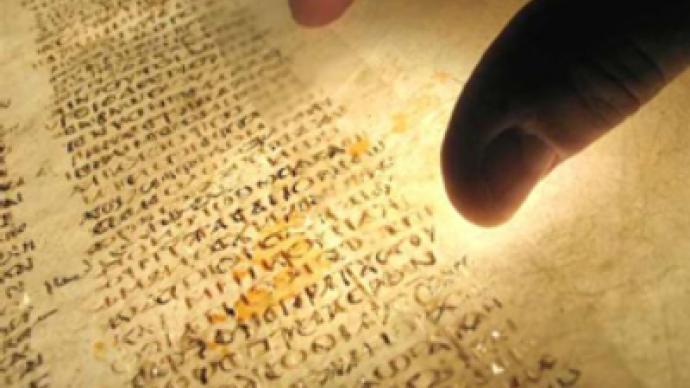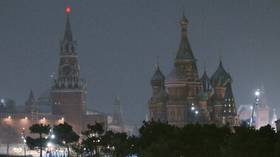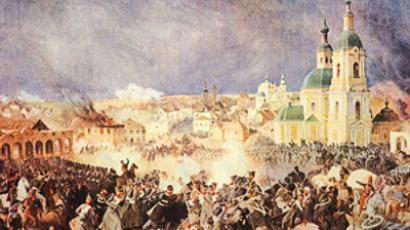Controversy over ancient Greek Bible resolved in Russia

A document which confirms the British Library’s ownership of Codex Sinaiticus, an ancient hand-written copy of the Greek Bible, has been found in the archives of the Russian Ministry of Foreign Affairs.
The agreement was signed in 1869 by the archbishop of the St. Catherine Monastery at the foot of Mt. Sinai and a representative of the Russian Empire.
In the document, Sinai archbishop Kallistrat, on behalf of the monastery confirms that the manuscripts of the Old and the New Testament from the monastic library were officially handed over to the Russian Emperor. The monastery was paid 9,000 roubles for the scripture.
In 1933, Stalin sold the Bible, written in the 4th century in uncial letters, to the library of the British Museum for £100,000. A month after the transfer to London, the St. Catherine Monastery declared that it is the only rightful owner of the manuscript which, according to the statement, was taken from their library by deceit.
St. Catherine's Monastery
St. Catherine's Monastery was built by order of Emperor Justinian I between 527 and 565 AD on the Sinai Peninsula in Egypt at the foot of Mount Sinai, where, according to the Hebrew Bible, Moses received the Ten Commandments from God. The place is sacred to Judaism, Christianity and Islam and became a favorite site of pilgrimage.
Recently, the monks have stopped pursuing ownership of the scripture, but still continue “to mourn its loss.” Now that the transfer of Codex Sinaiticus from the monastery to the Russian Empire has been officially proved legitimate, the rights of the British Library for possessing the ancient Bible are indisputable.The document confirming the purchase of Codex Sinaiticus by the Russian Empire was allegedly rediscovered by an employee of the Russian National Library, who had been researching the story of the manuscript and had access to the Foreign Ministry’s archives.














